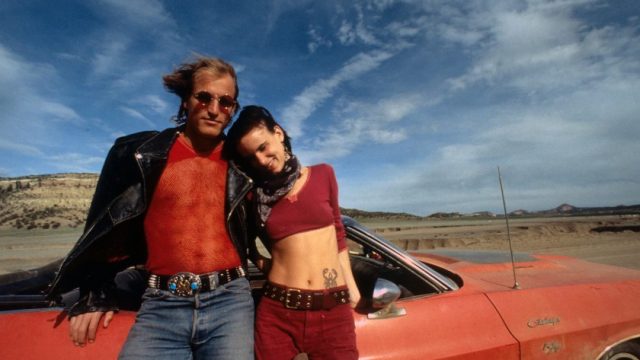Good morning, dumplings! How have you been? Anyways, on with the articles….
As much as I hate The AV Club, I wanted to share this article by about the venerability of Supernatural, by Alex McLevy on the 7th:
“Supernatural, in its own odd and unexpected way, has been the defining show of The CW. It’s never been the water-cooler series, generating heat for the network the way zeitgeist-penetrating shows like Gossip Girl, The Vampire Diaries, or Riverdale. And it’s never been a ratings juggernaut, pulling down record numbers like its superhero programming has done in more recent years. But what it has done is endured. As the channel went through multiple revamps of its image, chasing various demos and genre trends while always keeping its overall focus on the young-adult market, Supernatural hung in there, year after year, cultivating a fiercely loyal fan base and—amazingly—hanging on to it, in a way few series have. Even Buffy The Vampire Slayer, whose fandom is nothing if not noteworthy for its ardor, had shed significant viewership by its final season, whereas the drops in Nielsen numbers experienced by Supernatural in the last couple seasons have more or less mirrored the across-the-board pattern of declining traditional TV viewership at large. Whether bringing in new viewers or hanging on to the old, Sam and Dean keep finding an audience.”
On the 8th, Kevin Munger of The Outline theorized that “cringe” is responsible the death of teen movies:
“Last year’s Booksmart, though, was a clear attempt to update the classic format. Directed by Olivia Wilde and starring two charismatic female leads, the film received a litany of A-list celebrity endorsements — Taylor Swift, Ryan Reynolds, Natalie Portman — and extensive, glowing coverage in the press before its release. Even still, the film performed poorly at the box office, earning less than $10 million in its opening weekend, losing out to such movies as Detective Pikachu and Brightburn (whatever that is).”
One of its primary problems is that rather than creating a world that might be emulated by its desired teen viewership, it takes place in a universe that adult liberals wish they were in. Per the New Yorker’s review, Booksmart is a ‘wish fulfillment” film for liberals masquerading as a teen-hijinks movie — a counterfactual comedy about a world minus Trumpism, in which ostensible blue-state values prevail, without the slightest whiff of hatreds, enmities, or hostilities, except for those caused by personal misunderstandings.'”
While Nancy Drew has always bored me to tears, I did enjoy Olivia Rutigliano’s cultural history of the character, for Crime Reads, also on the 8th:
“Like Barbie, Nancy Drew offers a double-standard of severe female empowerment. While the suggestion that a woman can be anything/everything is exciting and motivating, these characters’ comprehensive competence can feel wearying. And it is also naïve to insist that a woman will be able to do everything she wants easily, without feeling burnt out, without receiving immeasurable pushback, while looking flawless the whole time. Which is not to say that young girls do or should read Nancy Drew because they crave realism, but to say that as we continue to reshape our hallowed characters, that we should ensure that these female characters are not idealized on behalf of the young (female) readers who will encounter them. The readers can do that work, themselves.”
Again on the 8th, Mark Olsen of The LA Times, talked to Oliver Stone and Juliette Lewis about Natural Born Killers:
“It’s been 25 years since Oliver Stone’s “Natural Born Killers” caused a stir when it hit theaters, but the violent tale of lovers-on-the-run mixed with a vicious media satire still feels controversial today.”
On the 9th, Frank Falisi wrote a beautiful analysis of Wendy & Lucy for Bright Wall/Dark Room:
“Wendy and Lucy isn’t about anything. Kelly Reichardt’s filmography (all art, bear and go with me) isn’t about things: it’s of them. We imagine an artifactual form—a body of prose, moving or still image, a melody—that addresses a world but ultimately is about itself, an artifact. And so, Wendy and Lucy is of the loops of being lost and losing, of the hope we bond to running away, of how much we pin to second chances in our lives. Wendy runs from Indiana and an undisclosed, though obviously negative, net of relationships. The land must change if the self will; the land must change if the self will not. She is jobless and homeless, saddled only to a 1988 Honda Accord, a few hundred carefully budgeted dollars, and a Lucy, her dog. She’s driving them to Ketchikan, Alaska, where she hopes to find work in the canneries. It occurs to me that Alaska is as long as it gets from Indiana, from New Jersey too. It occurs to me that maybe Wendy says she’s looking for steady work but hoping to find something like a second act. Second acts aren’t about running away, but you could be forgiven for thinking that.”
Enjoy!

